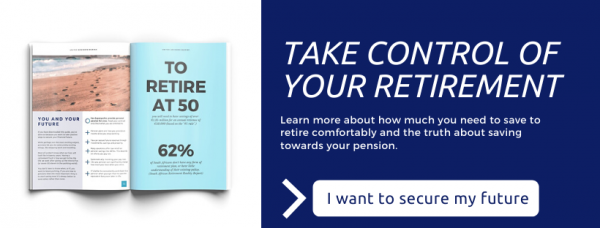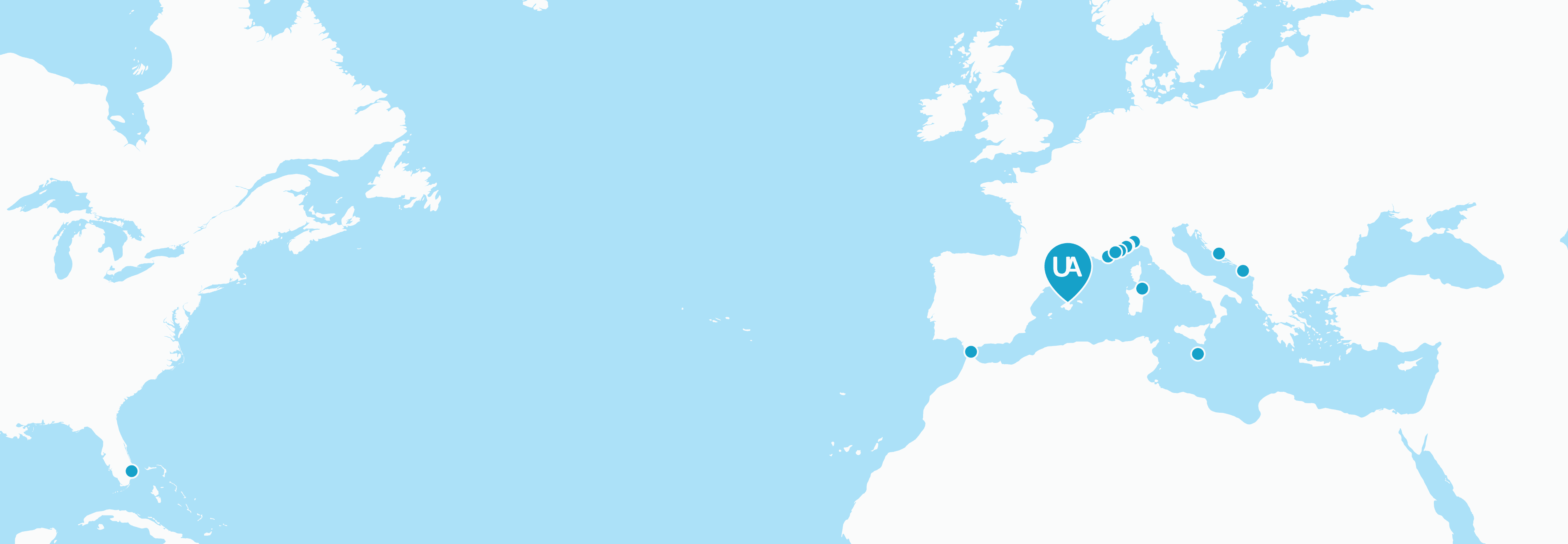6th Jul 2020
Starting out in the Superyacht industry
As financial advisers to Superyacht crew, we know how important it is to have the right information when you’re looking for your very first role.
Some of us here at UAM are ex-crew, so we know how challenging it can be to separate fact from fiction. In this post, we’ll point you toward some trusted sources for everything from getting the necessary qualifications to work onboard a yacht to sorting out your finances.
But first, how do you know if the industry is even right for you?
Is a career in yachting right for you?
Long gone are the days of walking the dock, fresh out of school, and landing a job onboard a yacht. The Superyacht industry has come a long way in terms of professionalism. Also, the people who pay millions to own a luxury yacht have high expectations of the crew they entrust to serve them and their guests.
Not only do you need to make sure you have the necessary qualifications, first ask yourself these questions:
- Can I handle being away from family and friends for months at a time?
- Am I comfortable working under pressure?
- How would I cope working and living with my colleagues?
- Do I respect wealthy people’s privacy and abide by confidentiality?
- Do I respect authority and the chain of command?
- Am I willing to invest in my professional and personal development?
- Do I really enjoy being at sea?
The Superyacht industry is incredibly niche and there is no clearly defined entry path for new crew. However, with the right balance of dedication, hard work and perseverance, nothing is impossible.
Where to start
Getting the right qualifications
Anyone who wants to work on commercial vessels that are more than 24 metres long must obtain STCW qualifications before seeking employment.
STCW stands for Standards of Training, Certification and Watchkeeping and are worldwide standards. They ensure all crew regardless of where they are in the world receive the same standard of training.
Additional qualifications you may need depend on the position you apply for; however, you will need to undertake the STCW Basic Safety Courses before you can apply to work as crew.
Have enough savings to support your job search
Ensure you have savings to tide you over if you don’t get a job straight away. There’s no general rule-of-thumb when it comes to how long the recruitment process will take, so we always recommend having enough money to support you while you look for work.
In fact, having money set aside as a financial safety net is something we recommend to all crew, regardless of whether they’re just starting out or well into their yachting career.
Make sure you have the right visas or work permits
Working onboard a Superyacht can take you all around the world, which is exciting. But you can get easily tripped up if you don’t have the right visas entitling you to enter certain countries (even if you don’t set foot on land!).
The following visas are the most common:
- EU – Transit Seaman Schengen Visa. A Schengen visa applies to foreign nationals who intend on entering a country in the Schengen area for business or tourist purposes. This visa allows a stay of up to 90 days and should be applied for at the consulate of your main Schengen destination. The processing time from the date of submission is two weeks. Frequent travellers may qualify for a multiple-entry visa valid for up to 5 years.
- USA – Private Yacht Visa (B1/B2). A B1/B2 private yacht visa is issued for citizens of foreign countries who wish to join a yacht as a crew member, sail out and cruise in US waters for more than 29 days. The yachting industry is considered a private means of transport. Therefore, whether joining a yacht for commercial or for pleasure in US waters and where there is no set itinerary, a B1/B2 visa is required.
- Caribbean – a short-stay Caribbean visa allows you to travel throughout the Caribbean including Aruba, Bonaire, Curação, Saba, St. Eustatius, and St. Maarten. It is issued with multiple entries for a stay of up to 90 days within 180 days.
Applying for visas, however, can be confusing and the process can be a painful barrier to overcome. Especially if you need to organise one in a short amount of time.
Our partner Seafarers Global have helped hundreds of Superyacht crew to obtain their visas hassle-free. Their Visa Express service is specifically for yacht crew, so regardless of where you are in the world, you can take advantage of this service and get the right support.
Landing your first Superyacht crew position
Once you’ve got your qualifications in hand and understand where to get help with visas, what next? How do you stand out from the crowd and land your first job in such a coveted industry? Our five tips are:
- Be in the right location at the right time.
- Never burn a bridge.
- Upskill and differentiate.
- Spend time on your CV.
- Don’t be tardy.
We’ve elaborated on all of the above in our 5 tips for getting your first superyacht job.
After you have secured your first Superyacht crew job
You’ve landed your first job in the Superyacht industry – congratulations! What’s next?
We’ve detailed all of the points included in the checklist below or click on the image if you’d like to download it.
Get your banking sorted
Until recently, a Standard Seafarer bank account was considered the only viable option for crew. While it remains to be the only account designed specifically for yacht crew who need to bank in multiple currencies, other options exist in the form of ‘free’ online bank accounts.
Opening the right bank account is the most critical step when starting out in the industry. In particular, make sure you have a bank account where your salary is credited in the same currency. This means you have control over when you exchange and transfer your money, rather than being at the mercy of the market on the day your salary lands in your account.
Organise your taxes and know what you must declare
It’s now time to turn your attention to sorting out things like taxes and declaring your income. Keeping your financial and tax affairs in order will ensure you don’t fall foul of tax authorities.
This is especially important for Superyacht crew as the country in which you must pay tax on your earnings may not necessarily be the same country in which you’re a resident. We understand it can get confusing, so we advise you always seek professional advice. Doing so will also help you to be aware of what tax advantages exist for Superyacht crew.
For example, the Seafarers Earnings Deduction (SED) is an allowance that helps UK taxpayers working in the Superyacht industry significantly reduce their tax bill. With the help of our tax partners, SK Tax, we’ve provided answers to the most commonly asked questions from crew when it comes to the SED.
For South African crew, tax issues can be a little more complicated. Some South African yacht crew incorrectly believe that because they have not registered for tax at the South African Revenue Services (SARS), they are not liable to pay any taxes in South Africa.
That is not the case and we strongly encourage all South African crew to read about the changes in March 2020 which effectively introduced an ‘expat tax’.
Protect yourself now and in the future
Health insurance
Once you have your banking and taxes organised, look closely at your employment contract to understand exactly what you are covered for in terms of health insurance. Your employer may not provide health insurance.
While some people in the industry believe it should be the responsibility of the employer to provide crew with health insurance, there isn’t a singular regulatory body to enforce this. It’s essential you read your contract in detail and understand if you are covered for onboard accidents or illness.
Pensions
There are ongoing debates in the industry when it comes to pensions for yacht crew. Some believe it’s the responsibility of the employer to pay into a pension fund while others believe it’s entirely up to crew members to fund their future retirement.
These differing views were echoed in our recent Superyacht Crew Financial Wellbeing Survey. Many crew members think it is only fair employers make some contribution while others believe it’s up to the individual.
What we do know from speaking with crew is that many don’t feel supported enough when saving towards their retirement. In response to whether employers contribute to an individual’s pension, only 6% of all respondents answered ‘yes’.
That figure is low when compared to other industries, especially those based onshore. As a result, crew often worry about their financial future.
We have always said there is a need for employers to play a role in educating crew about their pension rights and opportunities, and for crew to ensure they take action for funding their own retirement.
Keep investing in yourself
Training opportunities
Continually investing in yourself, be it via formal training and or self-development activities, will give you an edge in the competitive Superyacht industry. As we mentioned earlier in this post, you must have undertaken the four STCW Basic Safety Courses before entering the industry. Now that you’re in, don’t sit back on your laurels.
There is a whole host of training opportunities available to yacht crew; what you choose will depend on the specific requirements of your position and your own career motivations.
There are numerous providers around the world offering crew training programs. Make sure you check that their programs are industry-accredited before signing up.
And don’t discount online learning. Our partner ACREW has developed a series of instructive webinars specifically for crew.
Keep saving towards future development opportunities
Ensure you keep investing in your professional development by having savings set aside just for that. Set a specific goal and open a separate bank account if you need to, so you don’t spend your money on a whim. We’ve rounded up our top tips for making saving pain-free.
Listen and learn
Finally, take every opportunity to learn from your peers in the industry. In the world of Superyachts, there are so many different people and positions. You will have access to people you once considered inaccessible.
Treat your role in the industry as a privilege and spend time cultivating relationships with, and learning from, the people you meet.
Additional resources available to Superyacht crew
Our expertise lies in providing financial advice to crew, so our idea with this post was to give you a starting point for your journey into yachting.
We also know there is a lot more information available that explores in much greater detail all the aspects of joining the industry. Here are just a few to help with your research:
Could you work on a Superyacht?
Things to do before joining the Superyacht industry
How to get a job on a Superyacht – the Ultimate Guide
Get in touch
If you have any questions, in particular related to banking and savings for Superyacht crew, get in touch. We would love to help.
In the meantime, good luck with your job search!






